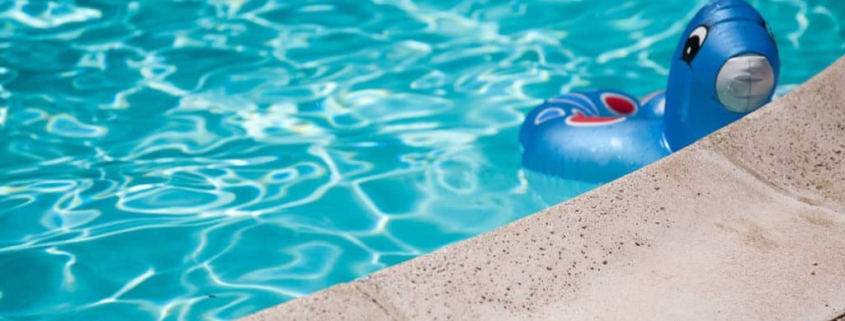Reasons You Need Swimming Pool Maintenance
Keep your pool aesthetically pleasing, functional, and hygienic with regular maintenance and cleanings. The benefits of pool maintenance are significant, and the procrastination of pool maintenance can be devastating- for your body and your pool.
Maintenance Prevents Permanent Structural Damage
Debris and other buildups in swimming pools introduce algae and other bacteria. While algae may appear only to be an aesthetic issue, it can develop into something much more severe.
Algae love to spread and will grow within the micro-cracks and splits in your pool. Growth in these areas can lead to the cracks becoming more significant, deeper, and broader.
Keeping your swimming pool clear of insects, leaves, grass clippings, sticks, and other organic materials that algae thrive on can prevent significant structural issues.
Maintenance Balances Water pH Levels and Slows Bacteria Buildup
Frequently testing and treating your pool to maintain appropriate pH levels ensures the health and safety of yourself and those who you allow to swim in your pool.
Too High pH Pool Levels
In pools, high pH levels mean the water is more alkaline; high alkaline levels reduce chlorine’s effectiveness.
Ineffective chlorine means that pathogens will grow and spread. This leads to skin rashes, murky water, and a buildup of minerals on the pool and pool equipment. Mineral buildup is especially harmful to the filtration system. Water flow will be restricted or blocked altogether and will require repair or complete replacement.
To bring your swimming pool’s alkalinity down, use a pH reducer called a pH minus. This product will contain sodium bisulfate or muriatic acid, and it will add acidity back to your pool.
Be sure to follow the instructions closely; too little of these products makes them ineffective; too much of these products can be downright dangerous. These chemicals will burn through concrete, so please be safe and use them with caution.
Too Low pH Pool Levels
Low pH levels in pools mean the water is acidic. High acid levels will etch, eat, and deteriorate your pool, your pool’s accessories, and even you and your friends.
Acidic water will destroy concrete, tiling, grout, plaster, stone, vinyl, plastic, and more. It will also dissolve skin, hair, and swimsuits. All of these combined dissolved materials make for a dirty, staining, and smelly swimming pool.
To bring your pool’s acidity up, use a pH up, also called a pH plus. This product’s main ingredient is potassium carbonate and potassium silicate. These ingredients are much safer than the ingredients used inside pH down.
Maintenance and Cleaning Extends the Life of Your Pool and Its Associated Equipment
Aside from structural issues to the main pool, you also reduce the wear and tear on the other components with regular cleanings. Murky water is not only unsafe to swim in, but it also blocks water movement, hinders the filtration system, and may ruin the components.
How to Clean and Properly Maintain Your Swimming Pool
Here are a few maintenance and cleaning steps that every pool owner should be implementing regularly:
- Cover the pool when not in use. This will prevent small animals, insects, organic and inorganic, from ending up in the swimming pool.
- Use a leaf skimmer to collect pine needles, leaves, bugs, and other debris that end up in the water anyway.
- Use a designated swimming pool brush to scrub the walls, floor, ladders, or steps of the pool. This removes buildup, algae, and other debris.
- Use a designated pool vacuum to suck up the materials that you scraped free with the swimming pool brush. Take the time also to brush the steps or rungs of the ladder as well.
- Open, inspect, and clean the water filter. Your owner’s manual should explain how to do this.
- Check, test, and treat your pool’s pH level as needed. See the above paragraph for more information.
- Chemically shock the pool with the appropriate product to increase the free chlorine levels and decrease the levels of algae and bacteria.
- Add algaecide to slow the growth of algae significantly.
- Keep the water circulating for at least eight to twelve hours per day for optimal pool health.
Not interested in running all of this cleaning and maintenance on your own?
Here at Pool Cleaner Online, we’re happy to offer you the best service in Australia. We serve Cronulla, Caringbah, Miranda, Sylvania, Woolooware, Gymea, Kirrawee, and the surrounding areas. You may call us at 0421 246 946; we want to help you.
If you would like to learn more about good pool cleaning and maintenance and the tools that make that possible, be sure to check out our blog for a treasure-trove of helpful information.




Leave a Reply
Want to join the discussion?Feel free to contribute!